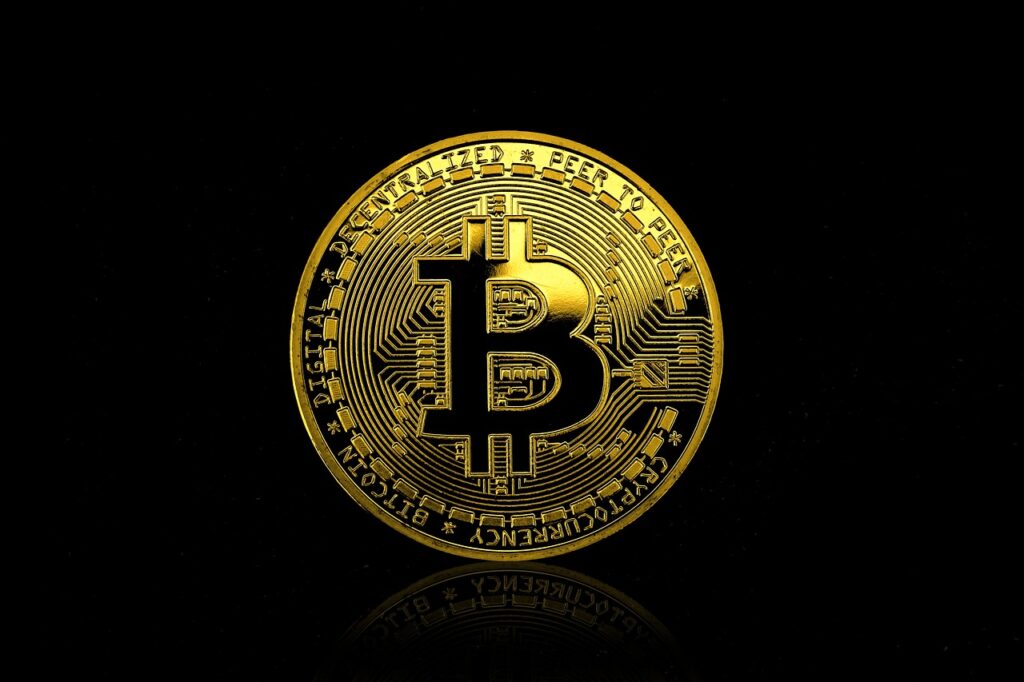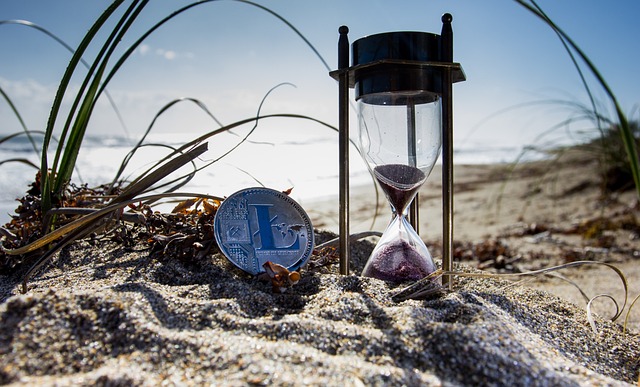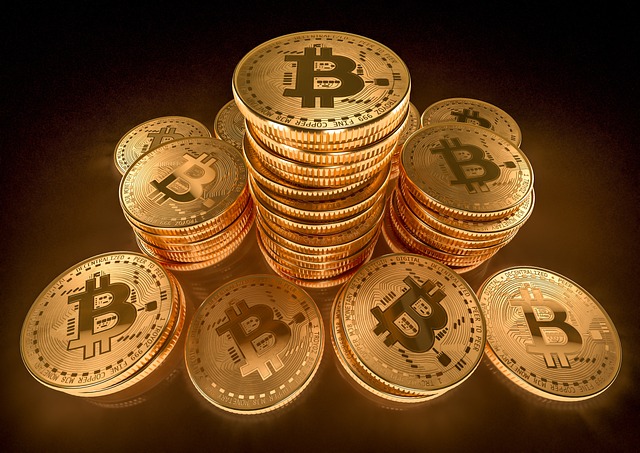Decentralized Finance Advantages: A Path to Financial Freedom
Decentralized Finance Advantages: A Path to Financial Freedom

Understanding the Revolution: Exploring the World of Decentralized Finance
Decentralized finance, often referred to as DeFi, is revolutionizing the way we think about and interact with the world of finance. Gone are the days when traditional financial institutions held all the power and controlled our access to money. DeFi is all about breaking free from these centralized institutions and putting the power back into the hands of individuals.
With DeFi, individuals have the opportunity to be in control of their own finances, free from the restrictions and limitations imposed by traditional banks and financial intermediaries. Peer-to-peer transactions are at the core of this decentralized system, allowing for direct and efficient exchanges of assets between individuals without the need for intermediaries. This not only cuts out the middlemen but also reduces transaction costs, making it a cost-effective alternative for financial transactions. By embracing DeFi, we empower ourselves and take charge of our financial future.
• DeFi is revolutionizing the world of finance by breaking free from traditional financial institutions.
• It puts the power back into the hands of individuals, allowing them to be in control of their own finances.
• Peer-to-peer transactions are at the core of DeFi, enabling direct and efficient exchanges between individuals.
• This decentralized system eliminates intermediaries, cutting out middlemen and reducing transaction costs.
• Embracing DeFi empowers individuals and allows them to take charge of their financial future.
Breaking Free from Traditional Institutions: Why Decentralized Finance Matters
Decentralized finance is revolutionizing the way we interact with traditional financial institutions. The beauty of decentralized finance lies in its ability to provide individuals with the power to control their own financial destiny. No longer do we have to rely on large banks and centralized organizations to manage our money. With decentralized finance, we can cut out the middlemen and make peer-to-peer transactions directly with others in the network.
By embracing decentralized finance, we can say goodbye to the high fees that are often associated with traditional financial institutions. In a decentralized system, transactions occur directly between individuals, eliminating the need for intermediaries who charge hefty fees for their services. With lower costs, decentralized finance opens up opportunities for individuals from all walks of life to participate in the financial ecosystem. It democratizes access to financial services, ensuring that everyone, regardless of their socio-economic background, can take part in the global financial system.
Empowering Individuals: How Decentralized Finance Puts You in Control
As the world becomes increasingly interconnected, individuals are seeking more control over their financial lives. This desire for autonomy is what makes decentralized finance so appealing. Unlike traditional financial institutions that act as intermediaries, decentralized finance, also known as DeFi, is built on blockchain technology. This means that transactions are carried out directly between peers without the need for a central authority. By eliminating the middlemen, individuals can have more control over their financial decisions and can transact with others on their own terms.
One of the key advantages of decentralized finance is that it allows individuals to access a wide range of financial services without needing permission from anyone else. For example, in traditional finance, accessing loans often involves a lengthy approval process and can be limited to those with a good credit history. However, with decentralized lending platforms, anyone with digital assets can easily borrow or lend funds without the need for intermediaries. This open access ensures that individuals are not restricted by the barriers that are present in traditional finance, empowering them to make financial decisions that suit their unique circumstances.
Cutting Out the Middlemen: The Benefits of Peer-to-Peer Transactions
One of the key advantages of peer-to-peer transactions in decentralized finance is the elimination of intermediaries. Traditionally, when conducting a transaction, there is usually a third party involved, such as a bank or a payment processor. These intermediaries not only add an extra layer of complexity but also charge fees for their services. With peer-to-peer transactions, however, individuals can interact directly with one another, cutting out the middlemen and reducing costs.
By bypassing intermediaries, peer-to-peer transactions also offer greater control and transparency. Instead of relying on a central authority to facilitate and verify transactions, decentralized finance uses smart contracts and blockchain technology to automate and record transactions securely. This means that individuals have full ownership of their assets and can directly participate in the transaction process. Moreover, the use of transparent and immutable blockchain records ensures that all transactions are visible to all participants, reducing the risk of fraud and providing a higher level of trust in the system.
Say Goodbye to High Fees: Lower Costs with Decentralized Finance
One of the major advantages of decentralized finance is its ability to significantly lower costs and eliminate high fees. In traditional financial systems, intermediaries such as banks and financial institutions often charge substantial fees for various services, including transactions, loans, and investments. These fees can quickly add up, especially for individuals who engage in frequent financial activities. However, with decentralized finance, these unnecessary costs are reduced or even eliminated altogether.
Decentralized finance operates on a peer-to-peer basis, allowing individuals to transact directly with each other without the need for intermediaries. This eliminates the middlemen, such as banks or brokers, who would typically charge fees for facilitating transactions. Instead, decentralized finance relies on blockchain technology and smart contracts to automate and enforce agreements, thus reducing the need for costly intermediaries.

Unrestricted Access: The Global Reach of Decentralized Finance
Decentralized finance has opened up a world of opportunities with its global reach and unrestricted access. Unlike traditional financial systems that are often limited by geographical boundaries and strict regulations, decentralized finance allows individuals from any corner of the world to participate. Whether you are in a rural village or a bustling city, as long as you have an internet connection, you can access and engage in decentralized financial activities.
This global reach of decentralized finance has brought financial empowerment to many who were previously excluded from the traditional financial system. In countries with limited access to banking services, decentralized finance provides a lifeline, giving people the ability to store, transfer, and invest their funds without the need for a traditional bank account. By removing these barriers, decentralized finance is not only facilitating financial inclusion but also fostering economic growth in regions that were once underserved. The potential impact of this global reach is immense, as it opens up a new world of possibilities for individuals and communities worldwide.
Protecting Your Privacy: Anonymity and Security in Decentralized Finance
Decentralized finance (DeFi) brings forth a major advantage for its users: privacy protection. Unlike traditional financial systems where personal information is often collected and stored by centralized institutions, DeFi platforms operate on blockchain technology, which ensures anonymity and security. When engaging in transactions or investments on DeFi platforms, users can rest assured that their personal information, such as names and addresses, is not disclosed to any third parties without their consent.
Additionally, DeFi platforms incorporate encryption algorithms to safeguard sensitive data. By encrypting the data, it becomes unintelligible to anyone without the proper decryption key, preventing unauthorized access. This level of security ensures that user information remains confidential and protected from potential cyber threats. Moreover, the decentralized nature of DeFi limits the potential for data breaches, as there is no single point of failure that can be targeted by malicious actors. As a result, users can have peace of mind knowing that their privacy is prioritized and their financial activities remain private.
Embracing Financial Inclusion: How Decentralized Finance Empowers the Unbanked
For many people around the world, access to basic financial services is a luxury they cannot afford. Being unbanked means not having a bank account or access to credit, leaving individuals and communities vulnerable to financial instability. However, decentralized finance (DeFi) has the potential to change this by offering a new way to empower the unbanked.
By leveraging blockchain technology, DeFi platforms enable individuals to participate in financial activities without the need for a traditional bank account. This opens up a world of opportunities for the unbanked, allowing them to save, invest, and transact digitally. Without the limitations imposed by traditional financial institutions, the unbanked can take control of their financial lives, paving the way for greater financial inclusion. Whether it’s borrowing money for entrepreneurial ventures or accessing affordable insurance, decentralized finance has the potential to level the playing field and empower those who have been excluded from the formal financial system.
Seizing Investment Opportunities: Exploring the World of Decentralized Lending and Borrowing
Decentralized lending and borrowing have emerged as exciting avenues for investors to seize new opportunities in the world of finance. By embracing this innovative approach, individuals can lend their assets directly to borrowers without the need for intermediaries such as banks or financial institutions. This not only opens up a wider range of investment possibilities, but it also empowers individuals to have more control over their financial decisions.
One of the key advantages of decentralized lending and borrowing is the potential for higher returns on investment. Unlike traditional lending platforms, decentralized finance protocols often offer competitive interest rates for lenders, allowing them to earn passive income on their assets. This can be particularly appealing for individuals looking for alternative investment options that offer better returns than traditional savings accounts or bonds. Additionally, borrowers who may have struggled to obtain loans from traditional institutions can benefit from decentralized lending, as they can access funds directly from individual lenders, often with less stringent requirements. This democratization of lending and borrowing brings about greater financial inclusivity and fosters a more inclusive and accessible financial system for all.
Embracing the Future: The Potential Impact of Decentralized Finance on Traditional Financial Systems
Decentralized finance, often referred to as DeFi, is poised to revolutionize traditional financial systems in ways we have never seen before.

One of the most significant potential impacts of decentralized finance on traditional financial systems is the democratization of access to financial services. With DeFi, anyone with an internet connection can participate in various financial activities, such as lending, borrowing, and investing, without the need for a bank account or credit history.

What is decentralized finance?
Decentralized finance, or DeFi, refers to a system where financial transactions and services are conducted on a decentralized network, such as blockchain, without the need for intermediaries like banks or traditional financial institutions.
Why does decentralized finance matter?
Decentralized finance matters because it allows individuals to have more control over their finances, lowers transaction costs, provides global access, enhances privacy and security, and promotes financial inclusion for the unbanked.
How does decentralized finance put individuals in control?
Decentralized finance puts individuals in control by eliminating the need for third parties and allowing direct peer-to-peer transactions. It enables individuals to manage their own funds, make decisions without restrictions, and have complete ownership of their assets.
What are the benefits of peer-to-peer transactions in decentralized finance?
Peer-to-peer transactions in decentralized finance eliminate the need for intermediaries, such as banks, which means faster transactions, lower fees, and greater transparency. It allows individuals to directly interact with each other, cutting out unnecessary middlemen.
How does decentralized finance lower costs?
Decentralized finance lowers costs by removing middlemen and intermediaries, which reduces transaction fees. It promotes competition, resulting in more affordable financial services and investment opportunities.
Can anyone access decentralized finance globally?
Yes, decentralized finance offers unrestricted access globally. As long as individuals have an internet connection, they can participate in decentralized finance regardless of their geographical location.
How does decentralized finance protect privacy and security?
Decentralized finance provides anonymity and security by utilizing blockchain technology, which ensures transparent and tamper-resistant transactions. Personal information is not required, and individuals have control over their own data.
How does decentralized finance empower the unbanked?
Decentralized finance empowers the unbanked by providing them with access to financial services without needing a traditional bank account. It enables them to save, invest, and participate in the global economy.
What opportunities are available for investment in decentralized finance?
Decentralized finance offers various investment opportunities, such as decentralized lending and borrowing. Individuals can lend their assets to others and earn interest or borrow funds directly from peers without the need for a financial institution.
What potential impact can decentralized finance have on traditional financial systems?
Decentralized finance has the potential to disrupt traditional financial systems by challenging the dominance of traditional banks and intermediaries. It can lead to more inclusive and accessible financial services, lower costs, and greater financial freedom for individuals.
Todays Featured Product:
Buy, exchange and grow your crypto securely with a Ledger hardware wallet, combined with the Ledger Live app. It’s never been easier to keep your crypto safe and accessible. Buy direct from Ledger.com and get todays Special Offers Here.




